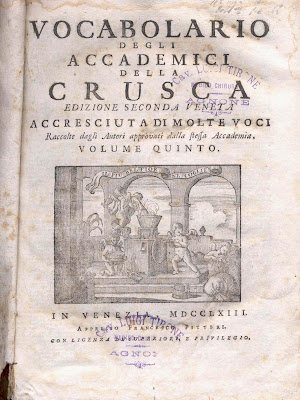
This writing is dedicated to three intersecting groups of people:
- the ones who do not live in Italy
- the ones who are not familiar with the Italian language
- the ones who don't know how people speak in the Italian offices of an international company.
My apologizes for those lucky or unlucky ones who do not belong to any of these groups, but the world needs to know what I'm about to say.
An interesting phenomenon that is happening in Italy, and what I very rarely hear talking about, is a shift of the Italian language towards the top global English.
Disgusting enough for any language purist this is not even a linear shift, but a shift with a curl at the end, not surprisingly if you mind our unique Italian sensitivity for arts and beauty.
Let me explain...
Fact 1: if you are in an international business you will spend a good deal of time speaking bizEnglish, and if you are not an English mother-tongue you will certainly need to make an effort to keep your mother-dictionary up to date.
I mean, if you start talking of brand, assets, advertising, positioning, training, pollution, low cost, value for money, "think out of the box", brainstorming, social media, etc. these English words will pop in your mind much faster than their Italian equivalent also when you will be speaking Italian.
Consequence of fact 1) When the above happens you basically have a double choice:
Choice 1.1) You make an extra mental effort not to use any English word and always stay stuck to Italian using the correct equivalent word (which I think is best)
Choice 1.2) Your become a victim of your laziness and surrender to the temptation of using the English words into the Italian talk.
Consequence of choice 1.1) You feel good and nowadays even a bit proud of yourself.
Consequence of choice 1.2) You try to redeem yourself by Italianizing the English words adding the Italian curl at the end, or -are, -ere and -ire (the standard endings for every Italian verb).
One example is clearer than a thousand words:
The English "clean" in Italian is "pulire", but in Italianish it becomes "cleanare".
The English "deliver" in Italian is "consegnare", but in Italianish it becomes "deliverare".
The English "split" in Italian is "dividere", but in the new Italianish is "splittare", and so on with other monsters like
screenare
matchare
trainizzare
smsare
customizzare
budgettare
linkare
schedulare
drivare
mailare
matchare
and the arrogantly creative STARTARE.
Happy new century, my ol' Italian tongue!



